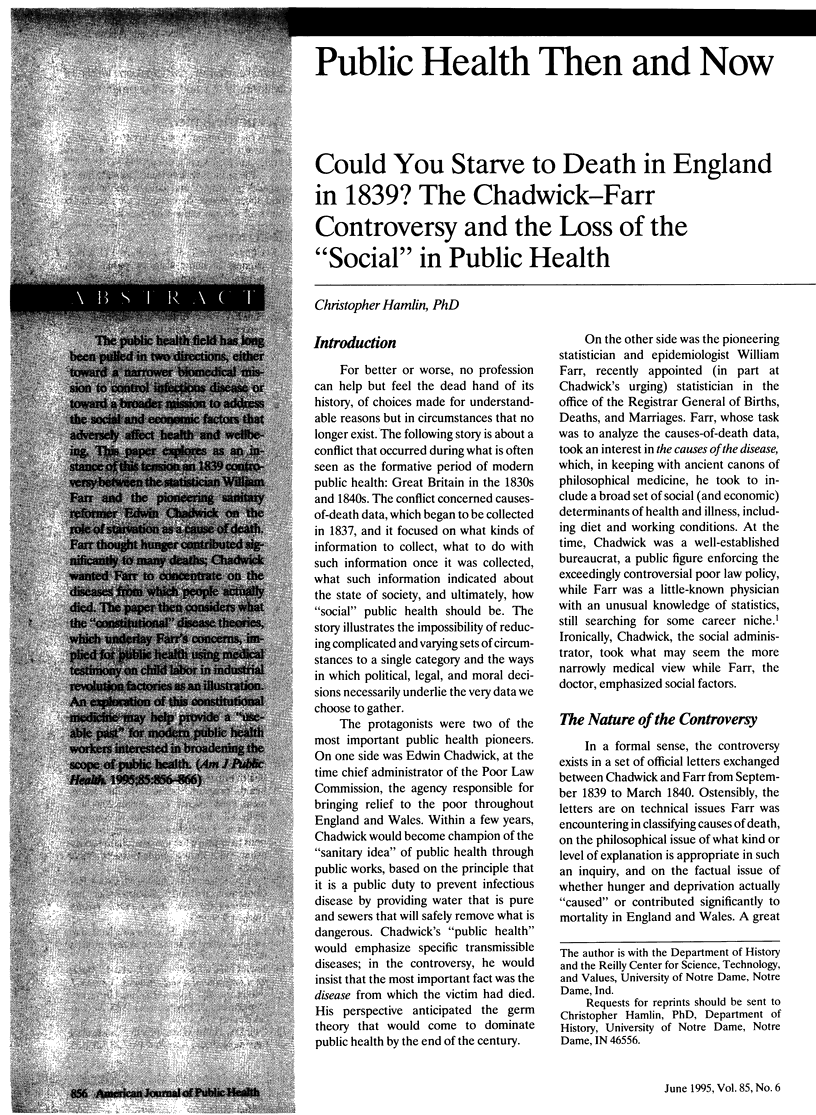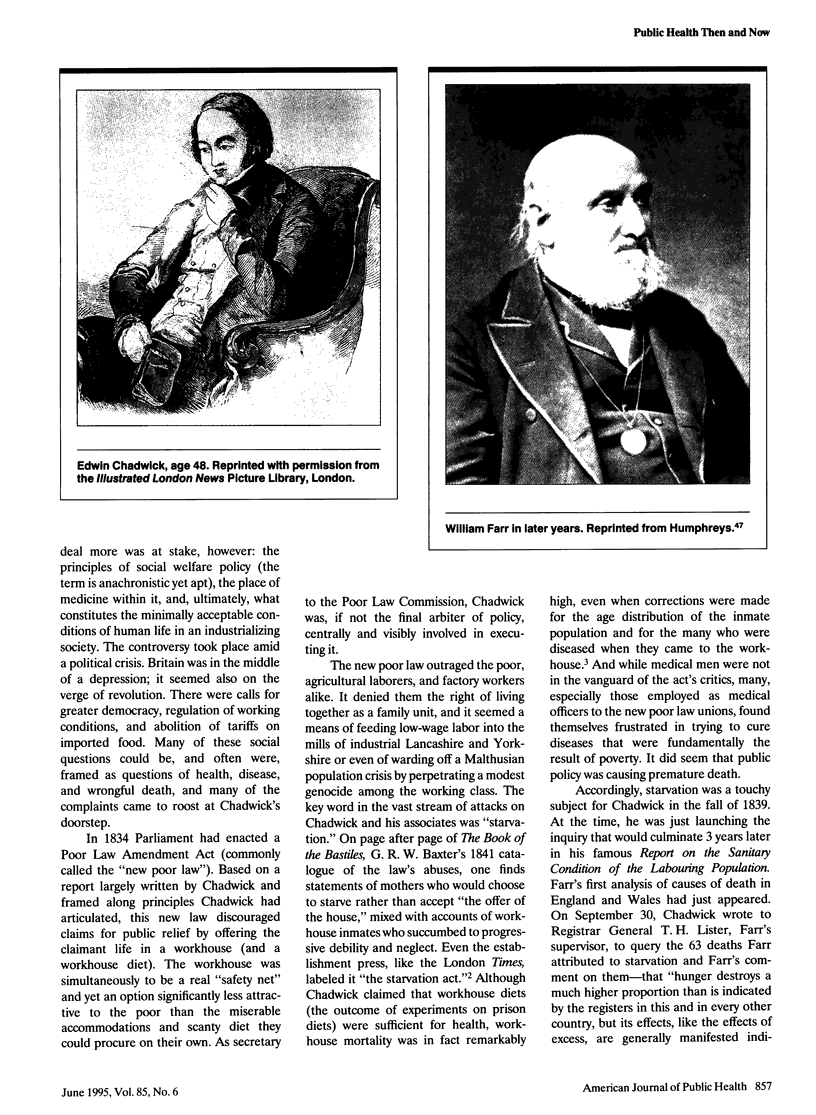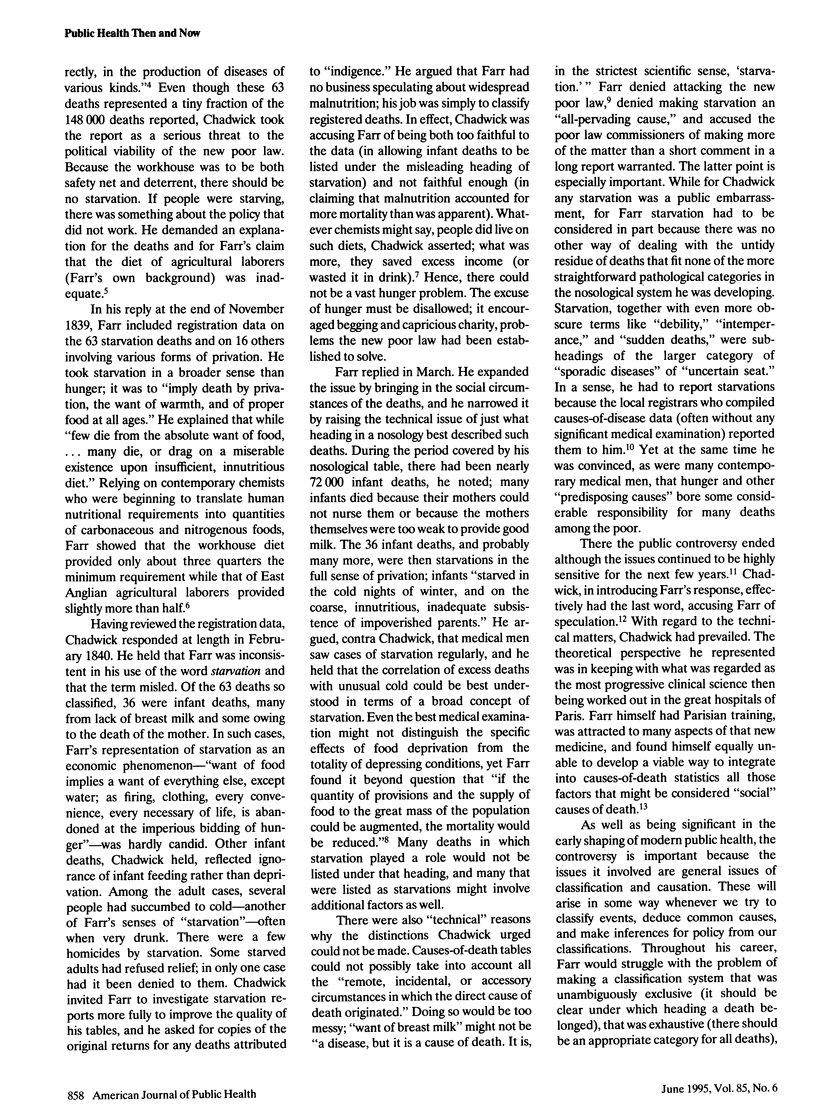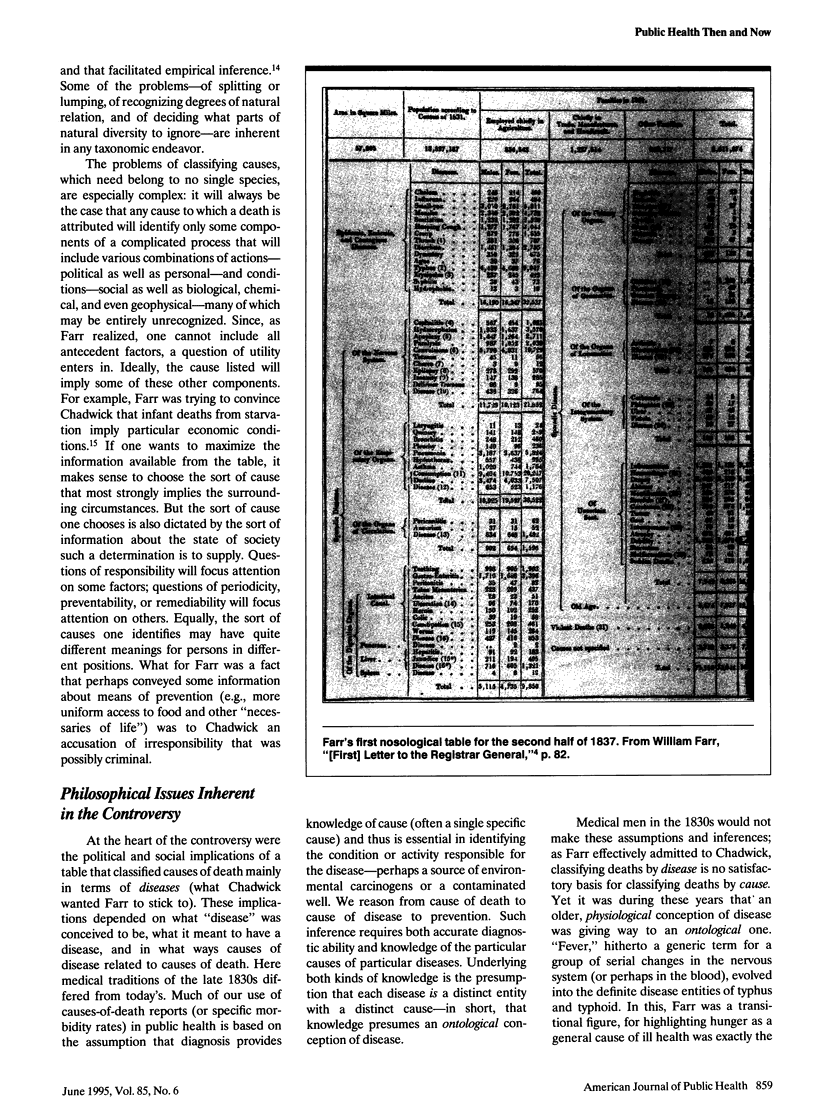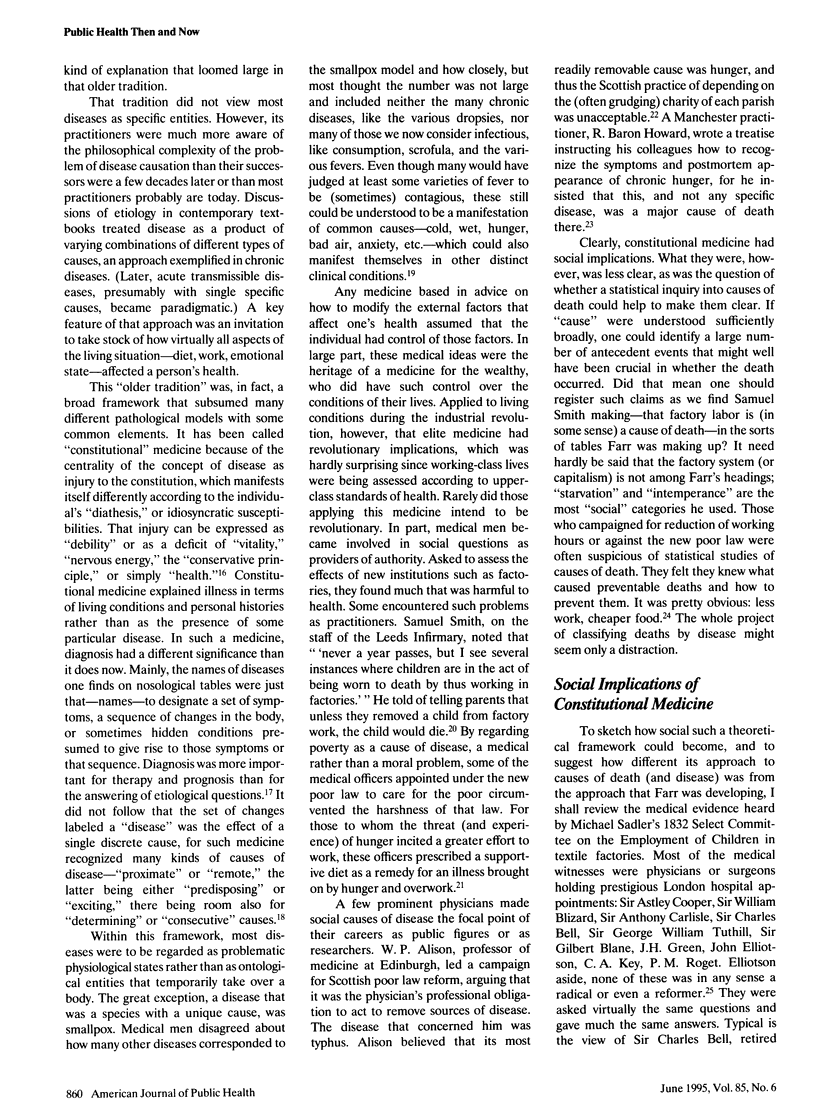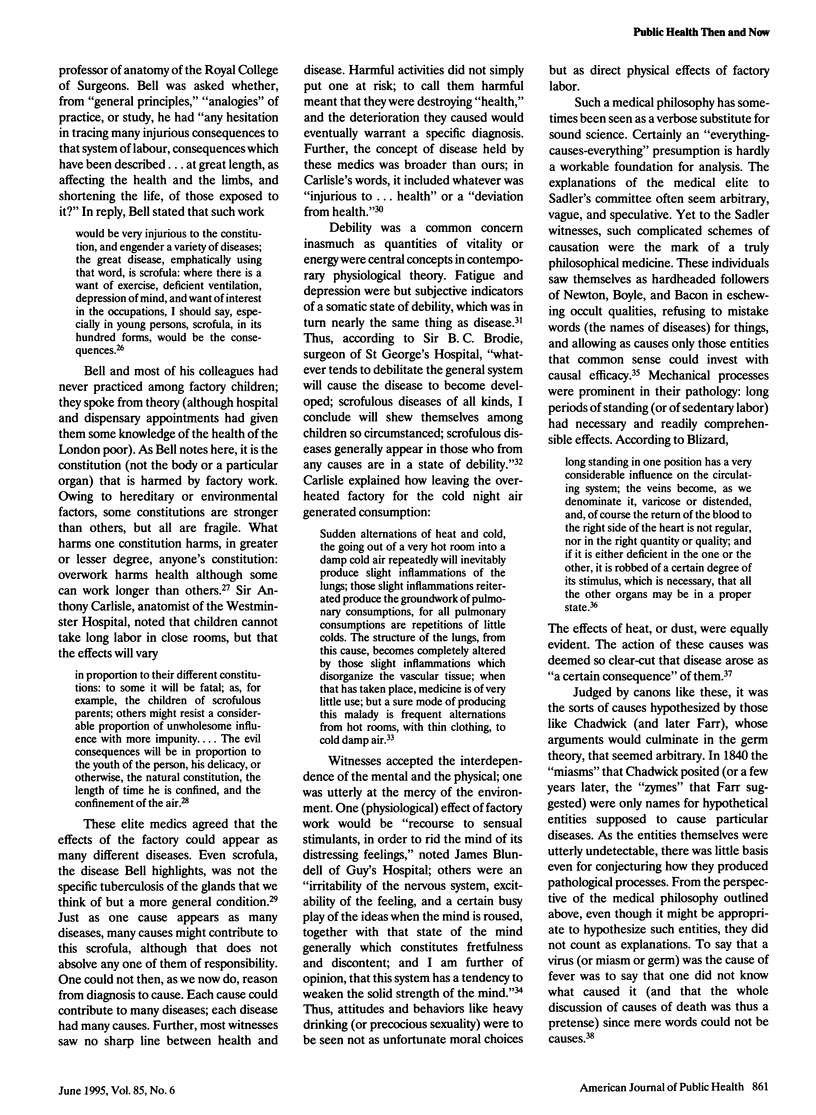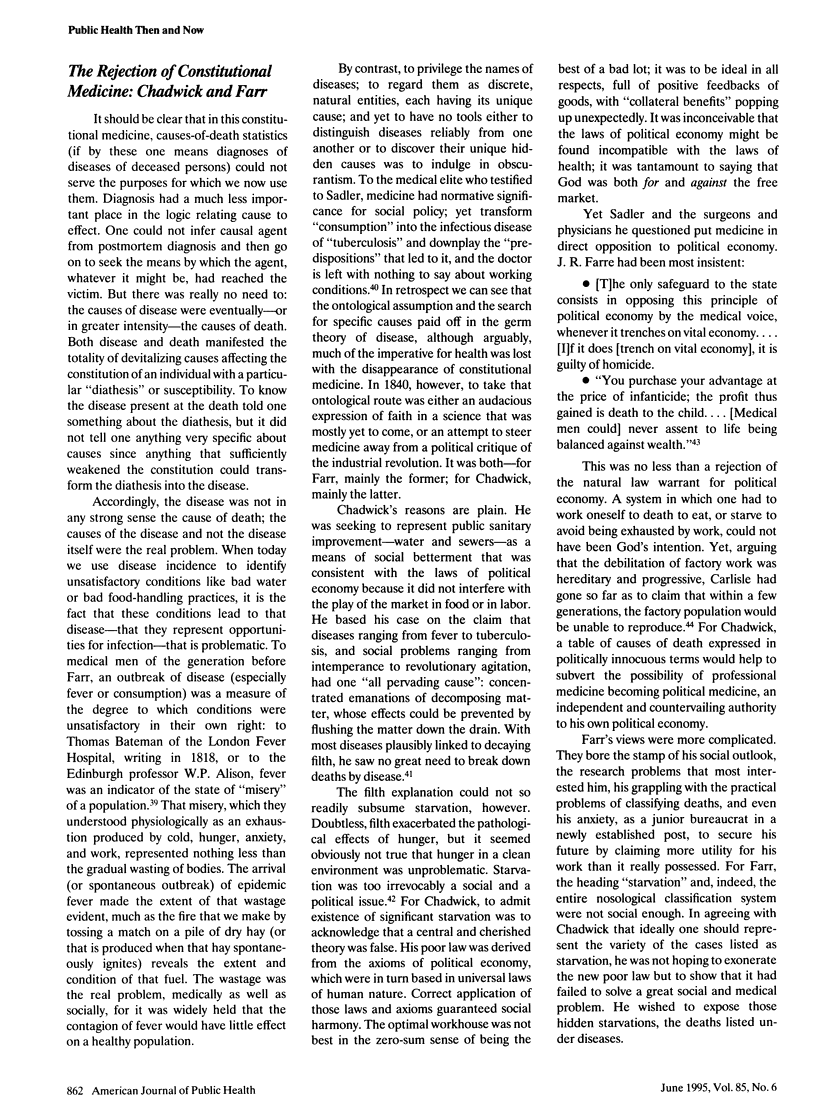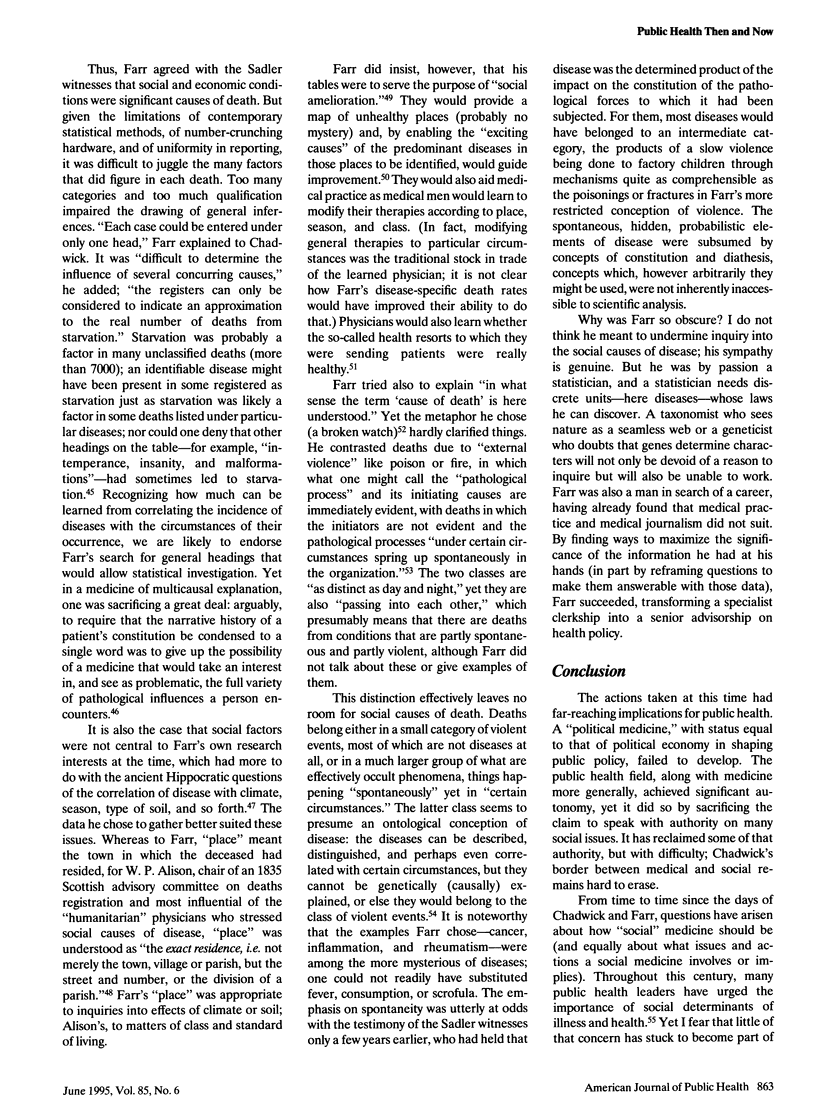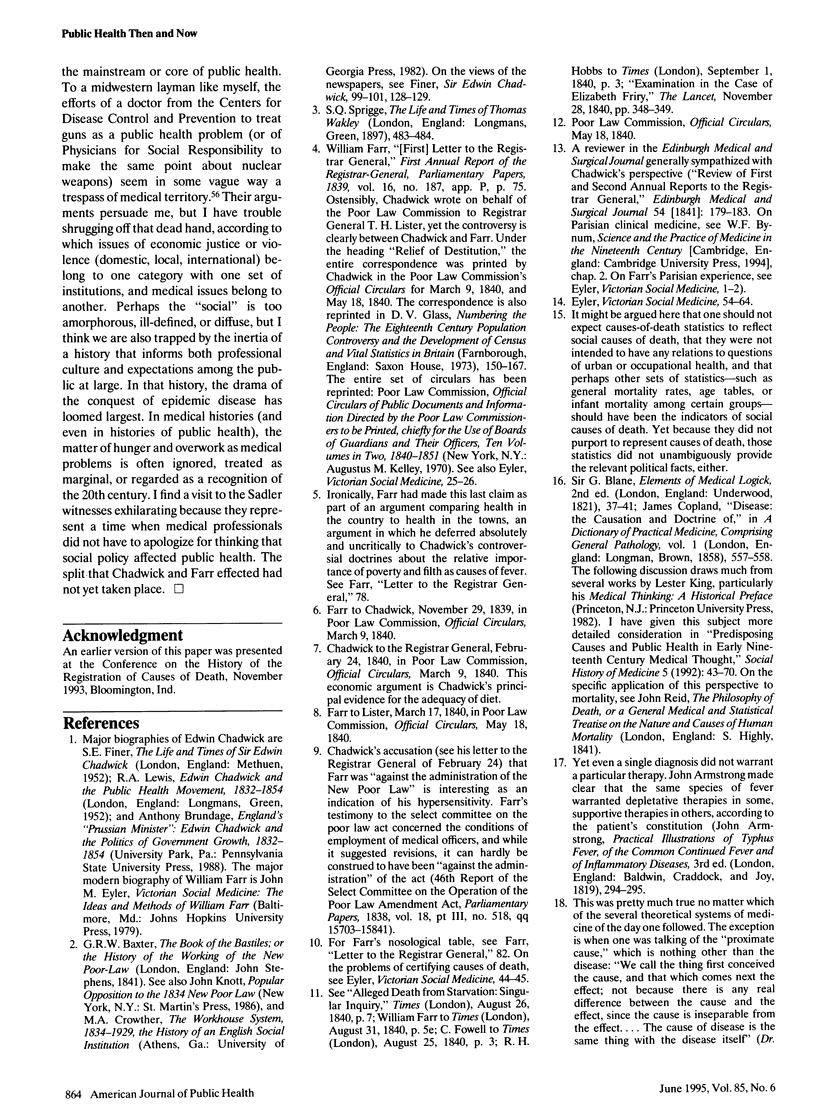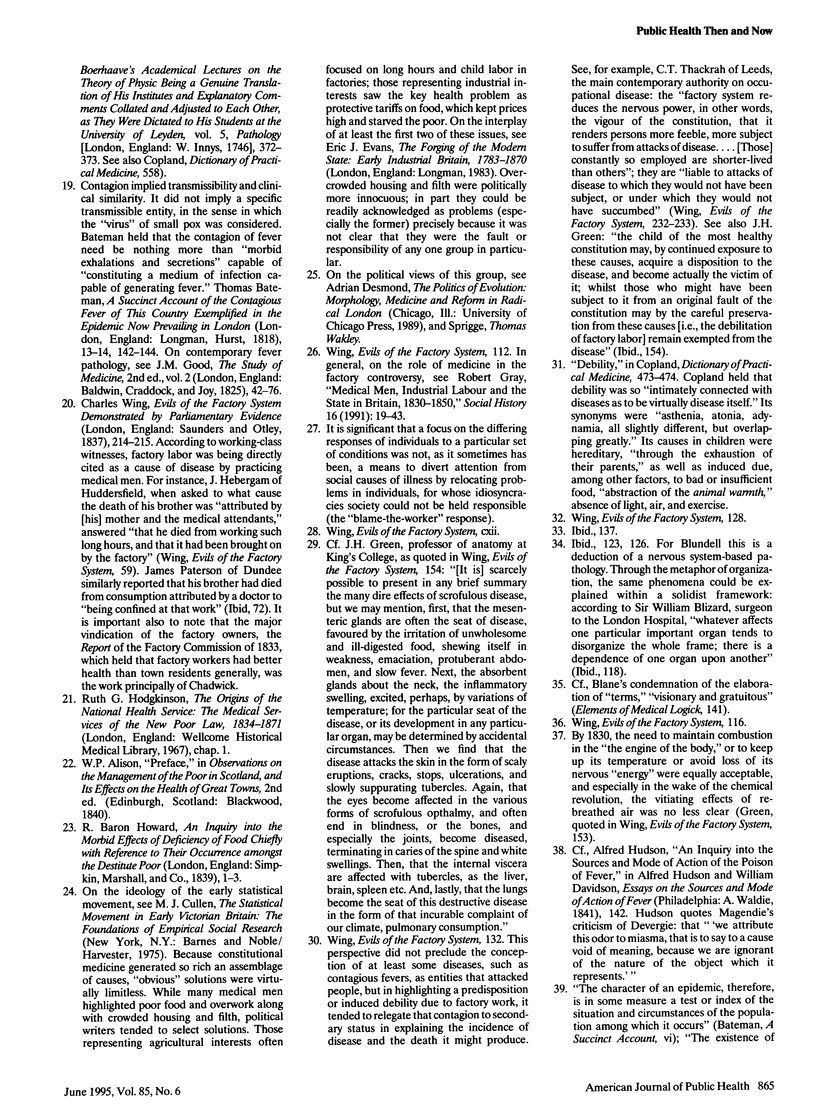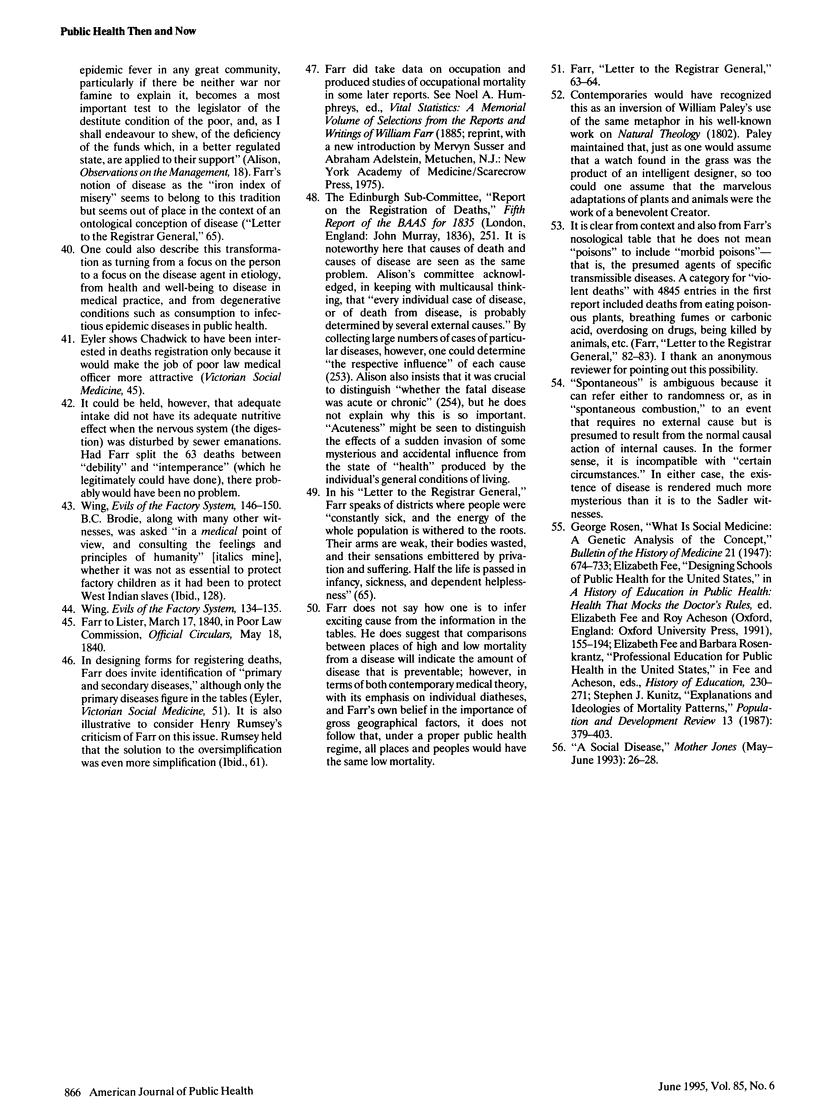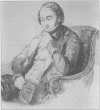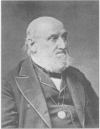Abstract
The public health field has long been pulled in two directions, either toward a narrower biomedical mission to control infectious disease or toward a broader mission to address the social and economic factors that adversely affect health and wellbeing. This paper explores as an instance of this tension an 1839 controversy between the statistician William Farr and the pioneering sanitary reformer Edwin Chadwick on the role of starvation as a cause of death. Farr thought hunger contribution significantly to many deaths; Chadwick wanted Farr to concentrate on the diseases from which people actually died. The paper then considers what the "constitutional" disease theories, which underlay Farr's concerns, implied for public health using medical testimony on child labor in industrial revolution factories as an illustration. An exploration of this constitutional medicine may help provide a "useable past" for modern public health workers interested in broadening the scope of public health.
Full text
PDF